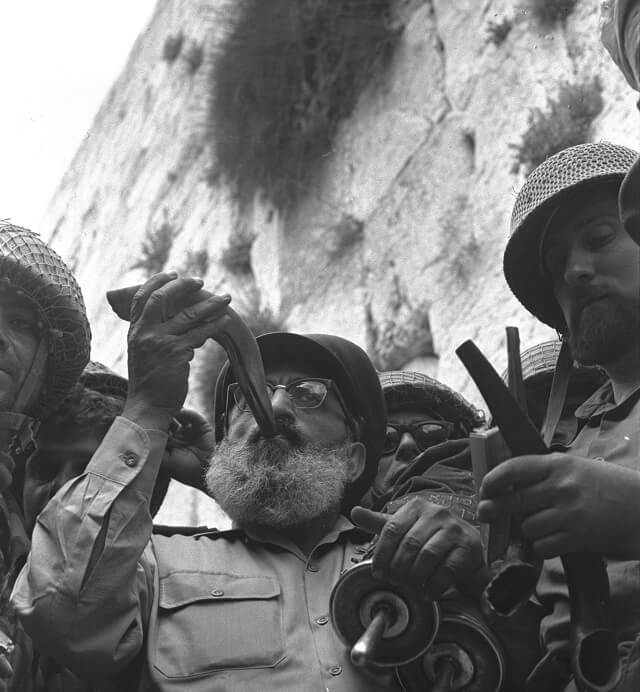
Rabbi Moshe Zvi Neriah, a student of Rav Kook and noted author and educator, posed the following question shortly after the Old City of Jerusalem was liberated in 1967:
Why is it that only now we merited conquering the Old City? Why did our efforts during the 1948 War of Independence fail?
A City Joined Together
The psalmist describes Jerusalem as a “city that was joined together” (Psalms 122:3). What is this ‘joining’ quality of Jerusalem? The Jerusalem Talmud (Baba Kama 7:7) explains that Jerusalem “joins each Jew to the other.” Jerusalem is meant to be a focal point of unity and cohesion for the Jewish people.
The Sages in Zevachim 114b used a peculiar phrase when teaching that the Passover offering may only be brought in the city of Jerusalem. For this offering, the Talmud explains, it is necessary that “all of Israel enter through one gate.” This unusual expression of unity — “entering through one gate” - rings with an amazing prophetic resonance.
During the 1948 War of Independence, the Palmach forces breached Zion Gate, while the Etzel forces were poised to break through Damascus Gate. At that point in time, we were divided and disunited. Had we succeeded then in conquering the city, there would have been arguments about who had captured the city and to whom does she belong. Jerusalem would have become a cause for conflict and dissension.
But Jerusalem belongs to the entire Jewish people. As the Talmud (Yoma 12a) says, the city was not portioned out to any particular tribe. For this reason, it was only in 1967, when we approached the Old City united, with one army — and entering through one gate — that we merited regaining the city. The IDF, an army representing the national unity government of Israel, and the Jewish people all over the world, entered via Jerusalem’s Lions Gate and liberated the city.
Interestingly, we find a similar idea when the Jewish people first conquered Jerusalem. Jerusalem — our holiest city, the eternal site of the Temple — was not conquered during Joshua’s conquest of the Land of Israel. Nor was it secured during the time of the Judges, a period spanning 400 years. Nor did King Saul capture it. It was only when the Jewish people were united under the enduring dynasty of King David was Jerusalem was delivered to our hands.
The medieval commentator Rabbi David Kimchi noted that the biblical text supports this idea. Immediately following David’s coronation in Hebron by the elders of Israel, it emphasizes: “Then David and all of Israel went to Jerusalem” (I Chronicles 11:4).
Pragmatic Reason
In a footnote, Rabbi Neriah offered a secondary, political explanation for delaying the liberation of the Old City until 1967. According to the UN partition plan, Jerusalem was intended to be an international city under the auspices of the United Nations. Had Jerusalem been captured in 1948, the newly formed state would have been forced to bow to pressure from the UN. (During the nineteen years that the Old City was under Jordanian occupation, for some reason no such pressure was placed on Jordan.)
In 1967, the situation had changed considerably. The State of Israel was much stronger and less susceptible to international pressure. The United Nations was a weaker institution, and it would have been difficult to suddenly initiate a diplomatic effort for the internationalization of Jerusalem after the issue had lain dormant for nineteen years.
(Adapted from Mo'adei HaRe’iyah, pp. 480-482)





